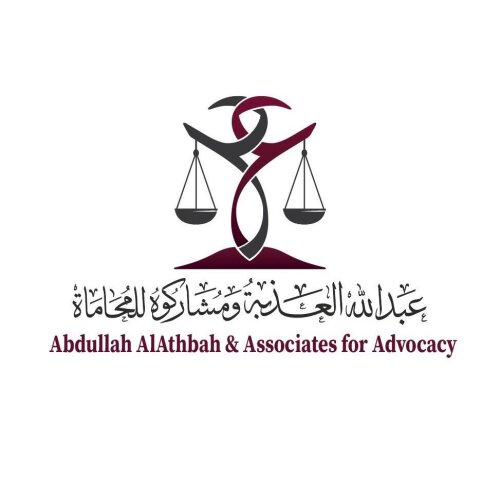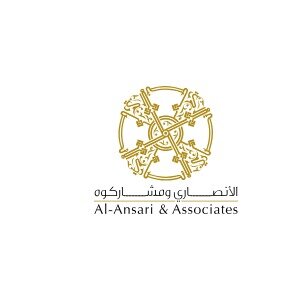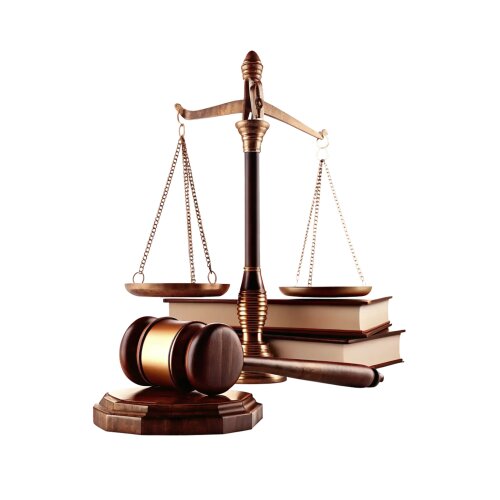Best Commercial Litigation Lawyers in Qatar
Share your needs with us, get contacted by law firms.
Free. Takes 2 min.
Or refine your search by selecting a city:
List of the best lawyers in Qatar
About Commercial Litigation Law in Qatar
Commercial litigation in Qatar encompasses the process of resolving disputes that arise in the context of business and commercial transactions. This branch of law deals with matters such as breaches of contract, business torts, partnership disputes, shareholder issues, debt recovery, and more. As Qatar continues to expand its presence as a regional commercial hub, the demand for effective dispute resolution has increased. The Qatari legal system is based primarily on civil law principles, with influences from Islamic (Sharia) law for certain matters. Commercial disputes may be resolved through courts or alternative dispute resolution methods such as arbitration and mediation.
Why You May Need a Lawyer
Navigating commercial litigation in Qatar can be complex due to the interplay of local laws, regulations, and court procedures. Individuals and businesses may require legal assistance in situations such as:
- Disputes over commercial contracts or agreements
- Non-payment or delay in payment between businesses
- Shareholder and partnership disagreements
- Breach of confidentiality, non-compete agreements, or other restrictive covenants
- Business torts, including allegations of fraud or misrepresentation
- Enforcement of foreign judgments or arbitral awards
- Intellectual property disputes in a commercial context
- Disputes related to business licenses or regulatory compliance
- Real estate or construction litigation tied to commercial projects
Engaging a lawyer helps protect your interests, ensures compliance with procedural requirements, and offers strategic advice tailored to your specific situation.
Local Laws Overview
The legal framework for commercial litigation in Qatar includes several important laws and institutions:
- Qatari Civil and Commercial Code: Governs general contract, obligation, and liability principles.
- Commercial Companies Law: Details the rules for the formation, operation, and dissolution of companies, as well as dispute resolution among shareholders and partners.
- Civil and Commercial Procedural Law: Sets out the processes for bringing and defending claims in Qatari courts, including evidence submission, appeals, and enforcement of judgments.
- Qatar International Court and Dispute Resolution Centre (QICDRC): Handles commercial disputes within the Qatar Financial Centre (QFC) and offers an English-language, common law-based alternative for certain commercial disagreements.
- Arbitration Law: Qatar has modernized its arbitration framework, allowing businessmen to resolve some disputes outside of court, which may be advantageous for complex, transnational matters.
- Influence of Sharia Law: While most commercial matters are treated under civil law, parties should be aware that some matters may intersect with Sharia-based principles.
Understanding these laws is crucial, as procedural errors or lack of familiarity with local regulations may negatively affect the outcome of your dispute.
Frequently Asked Questions
What is commercial litigation in Qatar?
Commercial litigation refers to the legal process used to resolve disputes that arise from business or commercial relationships, including contract disagreements, business torts, partnership issues, and related matters.
How are commercial disputes resolved in Qatar?
Disputes may be resolved through Qatari civil courts, specialized commercial sections within the court system, arbitration, mediation, or through the Qatar International Court for certain disputes within the QFC.
Can foreign businesses file lawsuits in Qatar?
Yes, foreign companies and individuals can bring claims in Qatari courts or through arbitration, provided the dispute has a relevant connection to Qatar or falls within a jurisdiction recognized by local law.
Are court proceedings in Qatar conducted in English?
Most court proceedings in Qatar are conducted in Arabic. However, the Qatar International Court handles cases in English, particularly for disputes within the Qatar Financial Centre jurisdiction.
What is the typical duration of a commercial litigation case in Qatar?
The duration can vary based on the complexity of the case, the court's caseload, and the willingness of parties to settle. Simple cases may be resolved in a few months, while complex cases can take a year or more.
Is arbitration recognized and enforced in Qatar?
Yes, Qatar recognizes and enforces arbitration awards under its Arbitration Law and relevant international conventions, such as the New York Convention, to which Qatar is a signatory.
Do I need legal representation to file a commercial lawsuit?
While individuals may represent themselves, it is highly advisable to engage a qualified lawyer, as the legal procedures, documentation, and language can be challenging for non-experts.
What are common remedies in commercial litigation?
Common remedies include monetary compensation, enforcement of contractual terms, injunctions to prevent specific actions, and orders for specific performance (requiring a party to fulfill a contractual obligation).
How are court fees structured in commercial litigation?
Court fees in Qatar depend on the nature and value of the claim. Fees must typically be paid at the time of filing and may increase for appeals and enforcement actions.
What happens if a court or arbitration order is not followed?
Unfulfilled court or arbitral awards may be enforced through the Qatari court system, which has mechanisms to compel compliance, including asset seizure or additional legal penalties.
Additional Resources
If you need more information or assistance, the following resources may be helpful:
- Qatar Ministry of Justice: Main government body overseeing legal matters, including court procedures and regulations.
- Qatar International Court and Dispute Resolution Centre (QICDRC): Offers resources and guidance for commercial disputes within the Qatar Financial Centre.
- Qatar Chamber of Commerce and Industry: May assist businesses with resources related to commercial disputes and arbitration.
- Qatar Lawyers Association: Provides a directory of licensed lawyers and law firms specializing in commercial litigation.
- Local law firms and independent legal consultants: Many offer free initial consultations, helpful for understanding your legal position.
Next Steps
If you are facing a commercial dispute in Qatar or anticipate litigation, consider the following steps:
- Gather all important documents, contracts, correspondence, and evidence related to your dispute.
- Assess your legal options and consider whether negotiation, mediation, or arbitration might offer a quicker resolution.
- Consult with a local lawyer who has expertise in Qatari commercial litigation. They can provide advice on the merits of your case and possible strategies.
- Understand your deadlines. There are strict time limits for filing claims, especially in commercial disputes.
- Work with your legal representative to develop a plan, prepare necessary documentation, and initiate legal proceedings if required.
- Keep communication open with your lawyer and stay informed about your case progress and potential settlement options.
Seeking early legal advice significantly improves your chances of a favorable outcome and ensures that your case proceeds smoothly through the Qatari judicial system.
Lawzana helps you find the best lawyers and law firms in Qatar through a curated and pre-screened list of qualified legal professionals. Our platform offers rankings and detailed profiles of attorneys and law firms, allowing you to compare based on practice areas, including Commercial Litigation, experience, and client feedback.
Each profile includes a description of the firm's areas of practice, client reviews, team members and partners, year of establishment, spoken languages, office locations, contact information, social media presence, and any published articles or resources. Most firms on our platform speak English and are experienced in both local and international legal matters.
Get a quote from top-rated law firms in Qatar — quickly, securely, and without unnecessary hassle.
Disclaimer:
The information provided on this page is for general informational purposes only and does not constitute legal advice. While we strive to ensure the accuracy and relevance of the content, legal information may change over time, and interpretations of the law can vary. You should always consult with a qualified legal professional for advice specific to your situation.
We disclaim all liability for actions taken or not taken based on the content of this page. If you believe any information is incorrect or outdated, please contact us, and we will review and update it where appropriate.
Browse commercial litigation law firms by city in Qatar
Refine your search by selecting a city.

















